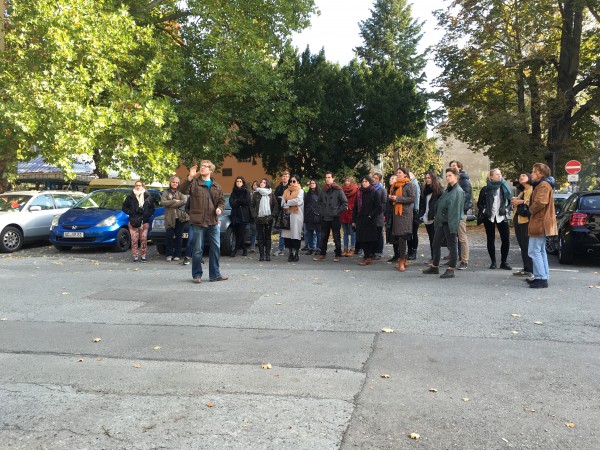Architectural theory
Tutor
Tutor website: Vibeke Gieskes
Title
Architectural theory
Context
The scale of the detail, the interior, the building, the city and the landscape.
Credits
10 ECTS points
General
At present a fundamental debate is going on that focuses on the future role of architects and urban designers. At the heart of the debate is the question how these spatial designers can contribute to shape the society of tomorrow. Many professionals and specialists in the field are aware of the fact that after times more gradual progress we are now on the verge of major societal changes, that will also affect the thinking about public space and architecture. The present tendency of rethinking society will be the starting point of studying the history and theory of architecture.
Participation
Working as a team on research, attending lectures, participation in discussions and debate. Working individually during research projects, in writing, and in presentations.
Educational philosophy
As we believe that architectural developments and thinking about the built environment never happen without other changes and interact with such changes, especially those in politics, philosophy, economics, in society in general and in the arts, we will take those fields into account when studying the history of architecture. We will be looking for turning points in history, sometimes revolutions, and the way architecture and the thinking about architecture changed in response, how architecture changed, and why. By becoming aware of the important international issues in architectural history and theory, the main and final goal of this course is that students will be encouraged to formulate their own ideas about their profession and the position of architects and designers in society.
Methodology
During the course different periods in architectural and societal history will be at stake. Each period will be treated during 4 to 6 weeks. Besides short lectures of the tutor and visiting lecturers, the main way of working will be interactive. Students will be stimulated to do research, give presentations, analyse buildings and texts written by architects or other specialists in the field of architecture, and study and analyse possibly related artistic expressions of a given period such as movies, music compositions, etc. Discussions in class, as well as writing texts and holding presentations will be important skills to be learnt in the course. Communicating about own work and work of others in a clear and substantiated way will inevitably contribute to being a successful designer in the field of architecture, public space and interior design.

